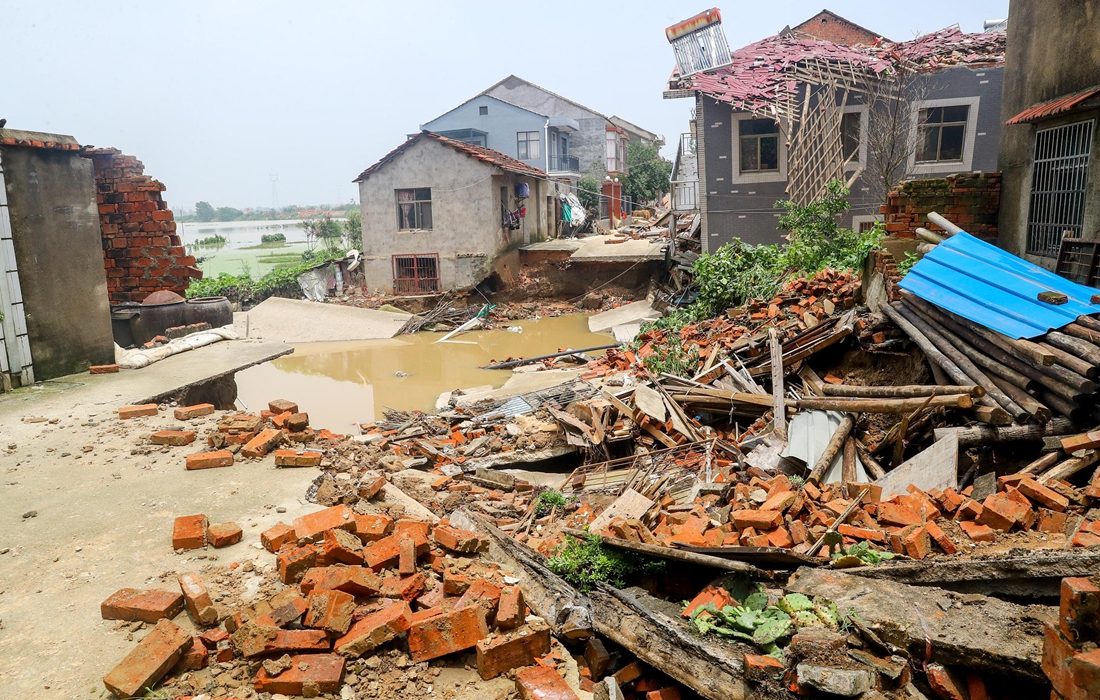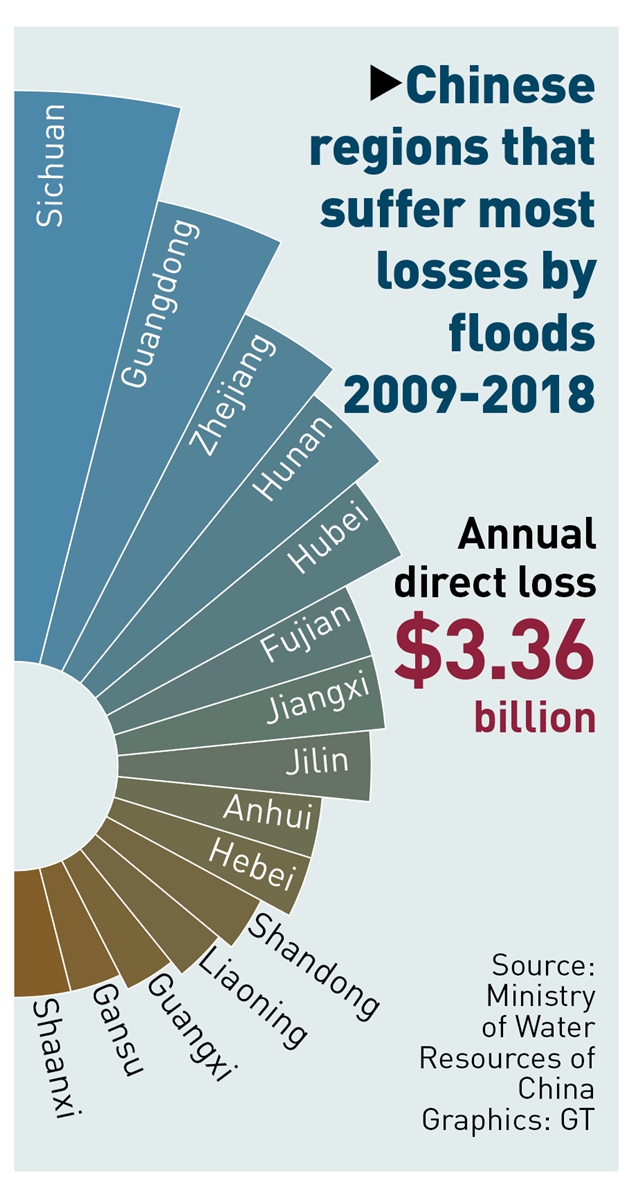Floods to weigh on CPI in short term
By Yang Kunyi Source: Global Times Published: 2020/7/13 20:23:40
Ample pork, vegetable supplies will be stabilizing force for markets

Rural roads and houses were destroyed by the floods in Huangmei county, Hubei Province on July 9, 2020. Photo: CFP
Heavy and lingering rainfalls and flooding in South China may put short-term pressure on China's consumer price index (CPI), experts say. But the overall downtrend in the CPI is unlikely to reverse in the second half of this year, given ample supplies of commodities on the market.
The severe flooding has caused 6.49 billion yuan ($926.9 million) of economic losses in East China's Jiangxi Province alone, one of the most battered regions, according to statistics from local authorities.
Wang Zhonghua, director of the local political consultative conference in Boyang county in Jiangxi Province, told the Global Times that food supplies are steady but prices are rising as people stock up.
"Villagers are buying food in preparation for more downpours," Wang said. The "pork price has risen to 68 yuan per kilogram from around 40 yuan, and prices are expected to rise further in the short term."
The pressure showed up in the latest CPI. China's CPI went up 2.5 percent in June, due to rising pork and vegetable prices. According to the National Bureau of Statistics (NBS), pork prices rose 81.6 percent and vegetable prices increased 4.2 percent year-on-year in June, contributing to the 0.1 percentage point increase compared with May.
The Ministry of Agriculture and Rural Affairs on Monday said prices elevated due to supply disruptions caused by the floods.
Liu Xuezhi, a macroeconomics expert at the Bank of Communications, told the Global Times that the impact might be "severe but short", since some of the worst-hit provinces, including Jiangxi, have seen growth in supplies lately.
Pork supplies in Jiangxi have increased. As of the end of the first quarter this year, there were 11.1 million live pigs in the province, after seven months of growth, according to the Xinhua News Agency, citing data provided by local agricultural authorities.
China's live pig stocks have rebounded from last year's outbreaks of African swine fever. According to the NBS, the national stock of live pigs grew in the fourth quarter of last year and first quarter of this year, to 321.1 million.
"With ample supplies upstream, the most intense pressure from the floods will be on road transportation," Liu said, "but it should be short-lived if the rain subsides in July."
China's last severe flooding occurred in 2016, causing over 67 billion yuan of direct economic losses. According to a report by CITIC, a brokerage, the losses this time may be lower due to better prevention efforts.

Graphics: GT
"There is an obvious increase in the number and capacity volume of reservoirs. Cities' ability to control urban flooding has significantly improved," read the report.
Tian Yun, vice director of the Beijing Economic Operation Association, told the Global Times that the improvements - such as "sponge" cities and better drainage systems - will help curb the losses.
"The CPI is likely to see a spike in the third quarter but will return to its downward trend, if the rain stops intensifying by this month's end," Tian said.
Posted in: ECONOMY